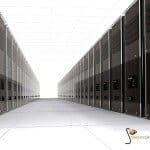
Estimated reading time: 5 minutes
New cybersecurity threats continue to emerge every day and hackers develop new intrusion techniques to access sensitive data and breach IT systems. This is why it is necessary to collaborate with high-level experts who keep track of new developments in the field of IT security. With the birth and continuous evolution of Big Data, the concept of Data Lake and Security Data Lake has also established itself.
For a company, it is expensive to hire a team that deals exclusively with the internal security of a system, which is why many turn to professionals, using a Security Operations Center as a Service (SOCaaS) This service, offered by SOD, also includes an SDL. Let us now try to understand what it is and what their importance and convenience is.
Security Data Lake: what they are

Un Data Lake è un archivio che include grandi quantità di dati, strutturati e non, che non sono stati ancora elaborati per uno scopo specifico. These have a simple architecture to store data. Each item is assigned a unique identifier and then tagged with a set of metadata.
When a business question arises, data scientists can query the Data Lake in order to discover data that could answer the question. Since the Data Lakes are sources that will store sensitive company information, it is necessary to protect them with effective security measures, however the external data ecosystem that feeds the Data Lakes is very dynamic and new problems could regularly arise that undermine its security.
Users authorized to access Data Lakes, for example, could explore and enrich its resources, consequently also increasing the risk of violation. If this were to occur, the consequences could be catastrophic for a company: violation of employee privacy, regulatory information or compromise of business-critical information.
A Security Data Lake, on the other hand, is more focused on security. It offers the possibility of acquiring data from many security tools, analyzing them to extract important information, mapping the fields following a common pattern.
The data contained in an SDL
There are countless different varieties of data, in different formats, JSON, XML, PCAP and more. A Security Data Lake supports all these types of data, ensuring a more accurate and efficient analysis process. Many companies leverage Big Data to develop machine learning-based threat detection systems. An example, for this eventuality, is the UEBA system integrated with the SOCaaS offered by SOD.
A Security Data Lake allows you to easily access data, making it available, also offering the opportunity for real-time analysis.
Apache Hadoop
It is a set of Open Source programs that allows applications to work and manage an enormous amount of data. The goal is to solve problems that involve high amounts of information and computation.
Apache Hadoop includes HDFS, YARN, and MapReduce. When we talk about Hadoop, therefore, we are referring to all those tools capable of interfacing and integrating with this technology. The role of Hadoop is essential because with them it is possible to store and process data at a very low cost compared to other tools. Furthermore, it is possible to do this on a large scale. An ideal solution, therefore, for managing an SDL.

Hadoop Distributed File System (HDFS): is one of the main components of Apache Hadoop, it provides access to application data without having to worry about defining schemas in advance.
Yet Another Resource Negotiator (YARN): It is used to manage computing resources in clusters, giving the possibility of using them to program user applications. It is responsible for managing the allocation of resources throughout the Hadoop ecosystem.
MapReduce: is a tool with which processing logic can be transferred, thus helping developers write applications capable of manipulating large amounts of information in a single manageable dataset.
What advantages does Hadoop offer?
It is important to use Hadoop because with it You can leverage clusters of multiple computers to analyze large amounts of information rather than using a single large computer. The advantage, compared to relational databases and data warehouse, lies in Hadoop’s ability to manage big data in a fast and flexible way.
Other advantages
Fault tolerance: Data is replicated across a cluster, so it can be easily recovered in the event of disk or node errors or malfunctions.
Costs: Hadoop is a much cheaper solution than other systems. It provides compute and storage on affordable hardware.
Strong community support: Hadoop is currently a project supported by an active community of developers who introduce updates, improvements and ideas, making it an attractive product for many companies.
Conclusions
In this article we learned the differences between a Data Lake and a Security Data Lake, clarifying the importance of using these tools in order to guarantee the correct integrity of the IT systems present in a company.
Collecting infrastructure data is only the first step for efficient analysis and the resulting security offered by monitoring, essential for a SOCaaS. Ask us how these technologies can help you manage your company’s cyber security.
For doubts and clarifications, we are always ready to answer all your questions.
Useful links:
Customers
Twitter FEED
Recent activity
-
SecureOnlineDesktop
Estimated reading time: 6 minutes L'impatto crescente delle minacce informatiche, su sistemi operativi privati op… https://t.co/FimxTS4o9G
-
SecureOnlineDesktop
Estimated reading time: 6 minutes The growing impact of cyber threats, on private or corporate operating systems… https://t.co/y6G6RYA9n1
-
SecureOnlineDesktop
Tempo di lettura stimato: 6 minuti Today we are talking about the CTI update of our services. Data security is… https://t.co/YAZkn7iFqa
-
SecureOnlineDesktop
Estimated reading time: 6 minutes Il tema della sicurezza delle informazioni è di grande attualità in questo peri… https://t.co/tfve5Kzr09
-
SecureOnlineDesktop
Estimated reading time: 6 minutes The issue of information security is very topical in this historical period ch… https://t.co/TP8gvdRcrF
Newsletter
{subscription_form_1}© 2023 Secure Online Desktop s.r.l. All Rights Reserved. Registered Office: via dell'Annunciata 27 – 20121 Milan (MI), Operational Office: via statuto 3 - 42121 Reggio Emilia (RE) – PEC [email protected] Tax code and VAT number 07485920966 – R.E.A. MI-1962358 Privacy Policy - ISO Certifications












